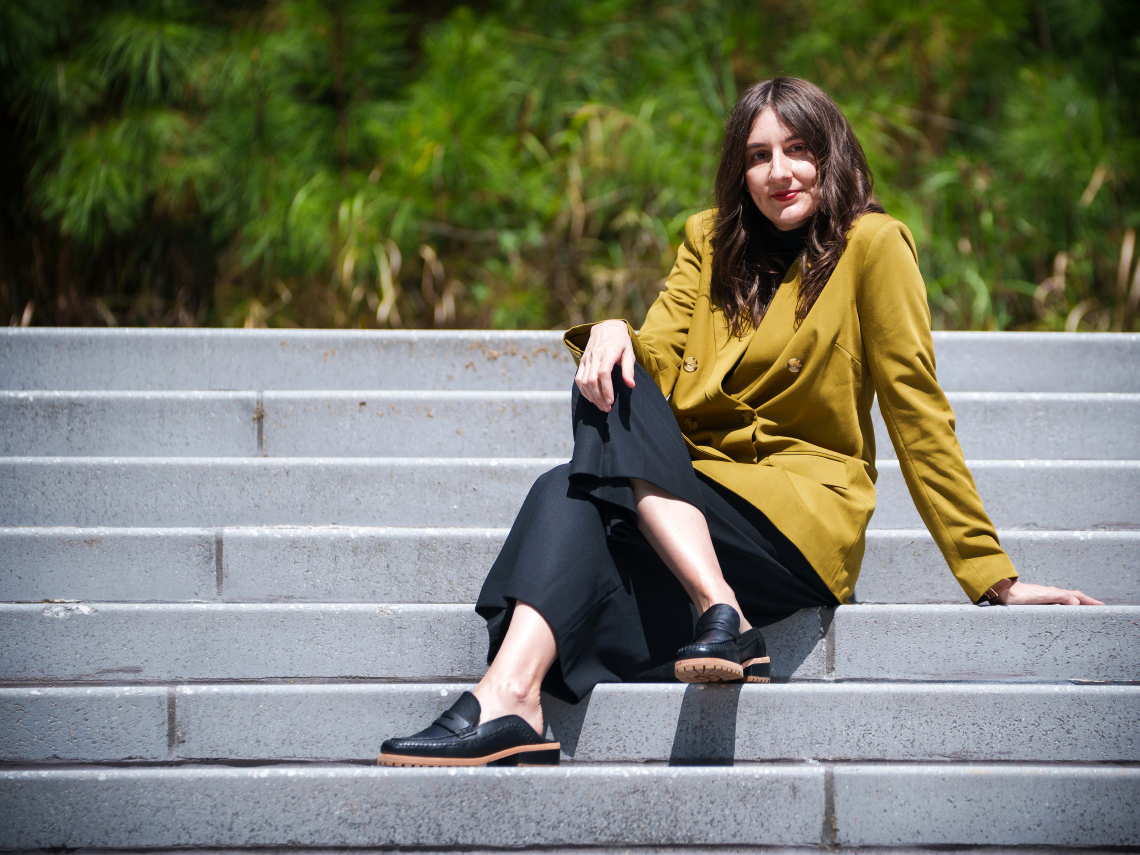Margo Lakin, Trinity Communications

“It’s okay not to have all the answers,” Christina A. León confides.
The assistant professor in the Program of Literature came to this realization as a first-year student at the University of Florida.
“After graduating from a rather dogmatic Catholic high school, it was somewhat liberating as an undergrad when I didn’t need to provide immediate answers to all my questions, and my professors gave me the ‘permission’ to just sit with a problem for a while,” she confesses.
With this new-found permission came the freedom to expand her boundaries and explore a wide swath of literary theories. Courses delving into Black feminist theory, gender, class, race and queer theory gave León a new set of theoretical tools and the vocabulary to navigate how the world makes sense of differences.
“So, I was studying at this university in a kind of progressive bubble in the South and working on literary studies with a theoretical focus,” she explains, “and it just broke my brain open to all these new ways of thinking — it fascinated me.”
“I quickly grew to appreciate getting into the nitty-gritty of how complex things can be, and I found that questions kept blooming, but answers were still kind of far away — my research really started at that point.”
A Caribbean literature course, taken during her master’s, opened an additional dialogue on migratory pathways to the United States and started León on a larger contemplative look at her family’s personal journey from Cuba in relation to the Caribbean. She began to immerse herself in her writing that questioned gender and trauma, as well as short stories focused on Cuban American experiences.
“Recognizing that narrative part of what happened to my own family changed my life and started new research addressing how we encounter differences rather than putting them in silos,” she shares.
As much as she enjoyed her undergraduate studies, she admits that graduate life was arduous. After earning her M.A., León sought a respite from academia and moved to San Francisco, fundraising for a feminist tutoring agency, Girls Moving Forward, and working as an optician to pay the bills. Living in the Mission District, when the trans movement was starting to gain traction, brought a first-hand education she hadn’t expected.
“San Francisco was incredible at that time,” she explains. “My neighbors were multigenerational Latino families and a lot of artists and queer people, and it was a beautiful thing to be surrounded by the movement, rather than reading a Judith Butler book about it.”
Three years later, León returned to the South to pursue a Ph.D. at Emory University, where the Department of Comparative Literature’s interdisciplinary program and theoretical training started her on a new path of study and longer conversations about her scholarship.
“I went to Emory thinking I would have this exclusive Cuban project, but Caribbean studies kept opening up my thoughts and creating more questions in my mind,” she says.
The questions eventually lead to a forthcoming book, reshuffling her research to discuss what Latinx literature brings to the conversation. Chapters focus on authors and artists who are marked by a demographic difference and explore how they negotiate the differences — and how the public reads their works.
While she hopes to instill students with that same freedom of inquiry she first experienced as an undergraduate, she also believes they need to be able to form personal and global connections with the works. For León, it is incredibly important, especially in this increasingly connected world, to spend time understanding how individuals experience differences.
“I’m not talking about how we style it or what we think about it — I mean how we encounter it,” she explains.
She also wants students to learn how to think with the text, in the granular and with the actual words on the page, rather than focusing on what they think the words mean. Because we live in a fast-paced society with immediate answers available at our fingertips, she turns to close reading in her classroom to provide students with the opportunity to slow down and have the time to see how the language is working.
“Undergrads are so smart about spotting differences,” she explains, “but when they approach a reading by first looking for the answers, it can turn a novel, short story or poem into a sociological exercise, where a student’s focus shifts from spending time with the text and forming questions to immediately saying something correct.”
“I want them to slow down enough to ask themselves the questions that they didn't even know they had, and then start working from there — it’s what I love most about teaching.”